Children of Greece
Realizing Children’s Rights in Greece
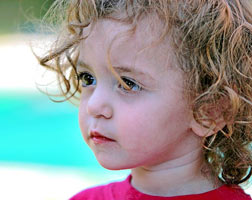
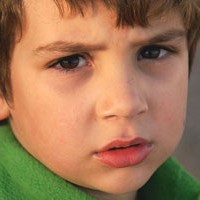
Since the crisis struck, Greeks, especially children, have been suffering from worsening living conditions. They are facing more and more difficulties – such as being abandoned – due to rising poverty levels. Children from ethnic minorities are not only the targets of discrimination, but are also the victims of human trafficking of a sexual or commercial nature. For a European Union (EU) country, the current status of Greek children is disturbing.
Population: 10,8 million Life expectancy: 80,8 years |
Main problems faced by children in Greece:
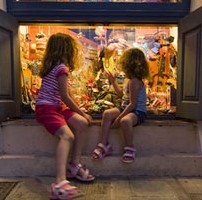 The financial crisis in Greece is progressively transforming into a social crisis, leading to a rise in the country’s poverty levels.
The financial crisis in Greece is progressively transforming into a social crisis, leading to a rise in the country’s poverty levels.
Compared with other EU countries, the number of children living in poverty is high. In 2007, 9.7% of children aged between 0 and 17 lived in households where income was 40% lower than the national average.
What’s more, 19.7% of children live in households unable to cater to their basic needs.
A study from 2008 underlined the fact that poverty mainly affected children through unemployed parents, lack of education and large family size.
In Greece, state education is free from primary school to university. It’s also compulsory between the ages of 6 and 15.
 The existence of many ethnic minorities means that “intercultural schools” exist for children with a minority background; those who are immigrants or who were born to a mixed marriage. These schools’ aim is to raise awareness amongst students of their own culture and values, and thus introduce them to the whole panorama of traditions present in Greek society. The idea is to facilitate the integration of immigrant children while preserving the language and culture of their parents. Unfortunately, in real life, their main mission seems to be teaching Greek language and culture instead.
The existence of many ethnic minorities means that “intercultural schools” exist for children with a minority background; those who are immigrants or who were born to a mixed marriage. These schools’ aim is to raise awareness amongst students of their own culture and values, and thus introduce them to the whole panorama of traditions present in Greek society. The idea is to facilitate the integration of immigrant children while preserving the language and culture of their parents. Unfortunately, in real life, their main mission seems to be teaching Greek language and culture instead.
Anybody living legally in Greece has a right to health care. Therefore anybody who can prove his or her resident status can access health care.
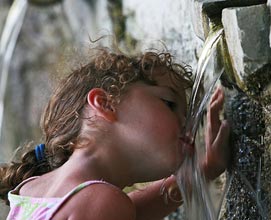 However, the health sector has been particularly badly hit by the crisis. Patients must pay a fixed price of 5€ for every hospital visit. Doctors frequently ask their patients to buy their own plasters, needles and bandages as the hospitals are out of stock.
However, the health sector has been particularly badly hit by the crisis. Patients must pay a fixed price of 5€ for every hospital visit. Doctors frequently ask their patients to buy their own plasters, needles and bandages as the hospitals are out of stock.
According to Médecins du Monde, the situation is worsening. The organisation has started distributing enriched nutritional products to some children; the most vulnerable families can no longer cope. People are even going directly to the NGO headquarters for free checkups and the situation is becoming difficult for the organisation to manage.
According to the Hellenic Centre for Disease Control and Prevention (a public health organisation, financed by the Ministry of Health) the number of children with HIV/AIDs is low. However, mother-to-child transmissions have been diagnosed as a consequence of nationwide deficiencies in screening pregnant women.
Systematic AIDs tests are now carried out on pregnant women to prevent mother-to-child transmission.
Physical Abuse
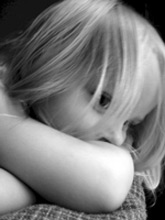 There are no national statistics on child abuse in Greece, mainly because the authorities are not obliged to report cases.
There are no national statistics on child abuse in Greece, mainly because the authorities are not obliged to report cases.
However, Greek law does forbid violence towards children at school and at home. All the same, this does not prevent 60% of Greek parents inflicting corporal punishment on their children. In the eyes of the law, use of corporal punishment as a disciplinary procedure constitutes an abuse of parental authority and the perpetrators should be jailed.
Prevention programmes, as well as programmes for victims of abuse, have been set up to improve the situation.
Sexual Abuse
In Greece some children are also victims of sexual abuse, which can include abuse from the child’s own family. This situation is particularly alarming since Greece has recently decided to consider paedophilia as a handicap.
The Greek constitution prohibits forced labour in a general way. In Greece, the minimum work age is 15, or as low as 12 for work in a family business.
Many children are forced to work to help their families make ends meet. Some parents even send their children to beg on the streets. In Greece, unfortunately, such activities aren’t punishable by law despite the Greek ratification of the Worst Forms of Child Labour Convention.
The government and many NGOs believe that the majority of children begging in the streets are made up of Rom or Albanian victims of trafficking.
Greece has become a transit country, as well as a destination for a large number of migrants, leading to an increase in all sorts of trafficking as well as prostitution and child pornography.
Child Trafficking with Commercial Aims
In Greece, most street children are victims of trafficking. Many of them come from the Rom and Albanian communities. They do not go to school, but spend their days in the streets, restaurants and hotels, begging, stealing, washing windscreens or selling trinkets in the hope of earning money for the traffickers who brought them to Greece.
Traffickers were quick to realise that importing children was both easy and profitable. Today, child trafficking for commercial reasons has greatly expanded.
Worse still, some parents are ready to sell their children, or rent them out to traffickers for a monthly payment.
Child Trafficking for Sexual Exploitation
Many young girls are victims of trafficking for the sex trade. Frequently, young, female, illegal immigrants are forced to work as prostitutes or face being reported to the authorities and deported.
Greece is a migratory pole because of its geographical position. Therefore, each passing year sees the arrival of many new immigrants, including children who, for the most part, fled their own countries in search of a better life.
Unaccompanied Minors
A large number of unaccompanied minors, from counties such as Albania, Bulgaria, Kazakhstan etc., are present in Greece.
Child Detainees
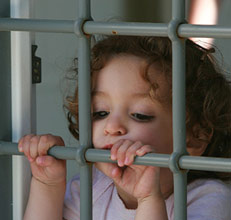 Unaccompaniedchildren are often detained in inhuman conditions. In Greece, detention centres are overpopulated, meaning women and children are crowded together in the same cells as men. Hygiene conditions are equally deplorable – to the point that they pose a danger to the detainees’ health.
Unaccompaniedchildren are often detained in inhuman conditions. In Greece, detention centres are overpopulated, meaning women and children are crowded together in the same cells as men. Hygiene conditions are equally deplorable – to the point that they pose a danger to the detainees’ health.
In December 2010, 120 non-accompanied migrant children were amongst the 450 detainees at the Fylakio-Kyprinou detention centre, according to Human Rights Watch. They had already spent weeks, or even months, in the centre and were detained side by side with adults, who shared even their mattresses.
Although Greece is meant to protect minors, and only detain them as a last resort, too many children are deprived of their freedom in horrific conditions.This is in spite of a legal obligation for the authorities to treat anybody on Greek soil in a humane way, regardless of their legal status.
Because of the current crisis, cases of children being abandoned have greatly increased in the last few months.
Many adults have lost their jobs and found themselves financially unable to take care of their children. Some parents leave them at school and never come to pick them up; others accompany them to centres originally destined for underage victims of abuse.
Today, about half the requests for admission come from very poor parents who would rather give up their children than see them destitute.
Children from Ethnic Minorities
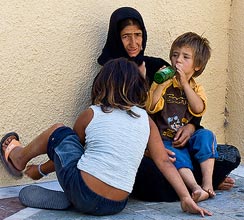 Greece is populated by a host of ethnic minorities: Turks (including Turks, Pomaks and Roms), Bulgarians, Armenians, Albanians (including Arvanites and Albanoi) and Macedonians.
Greece is populated by a host of ethnic minorities: Turks (including Turks, Pomaks and Roms), Bulgarians, Armenians, Albanians (including Arvanites and Albanoi) and Macedonians.
Ethnic minority children are often the target of discrimination. In Greece, Roms face a number of difficulties where jobs, public services, education and access to housing are concerned.
What’s more, communicating information about contraception and health practices is often complicated for children of ethnic minorities. These children’s parents also have trouble with birth registrations, meaning that, most of the time, the children don’t have birth certificates.

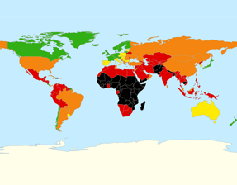
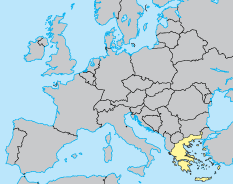
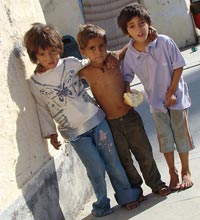 Child Trafficking
Child Trafficking